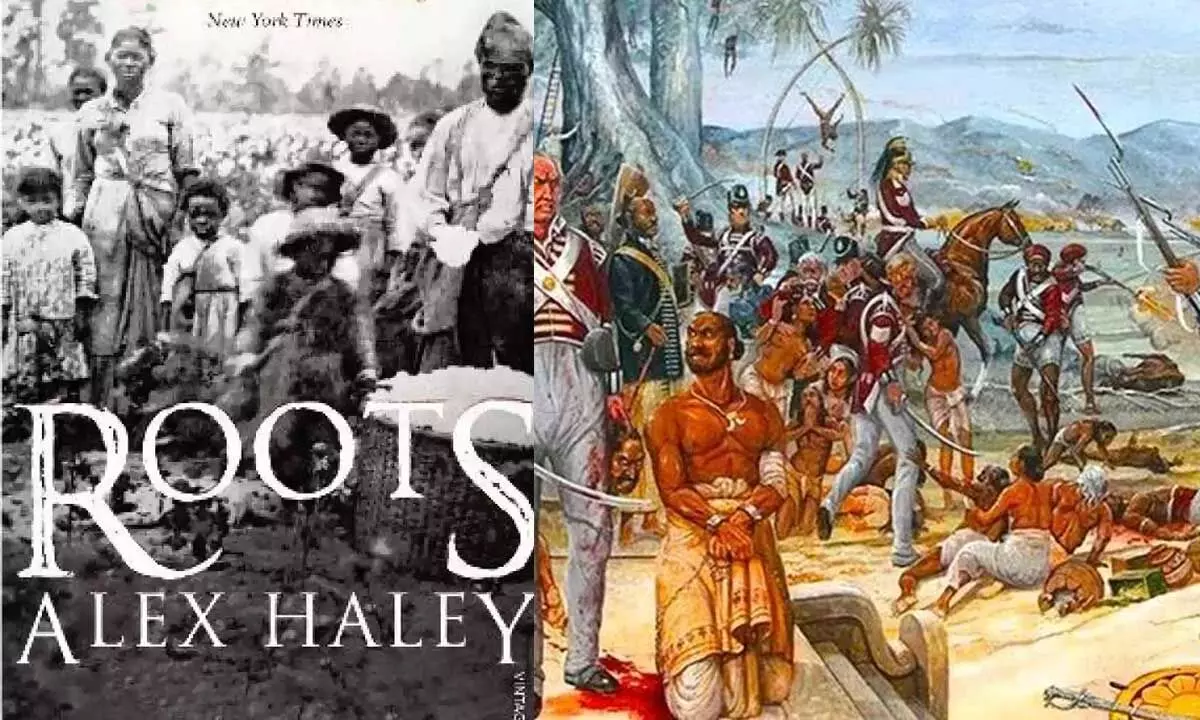Cultural Genocide: A Call for Legal Protection in Bharat

In “Roots” by Alex Haley, the author traces the journey of his ancestors, specifically the life of Kunta Kinte, who was taken from Africa and sold into slavery in America.
In “Roots” by Alex Haley, the author traces the journey of his ancestors, specifically the life of Kunta Kinte, who was taken from Africa and sold into slavery in America. The book is a powerful exploration of personal identity and heritage, offering a deep look into the brutal history of slavery and the resilience of African Americans in preserving their cultural roots despite centuries of oppression.
Haley’s journey to uncover his ancestry in “Roots” is not just a personal story but also a reflection of how critical it is for communities to retain their sense of identity, even in the face of systematic attempts to erase their history and culture. The themes explored in Haley’s book resonate globally, highlighting the universal importance of knowing one’s roots and the enduring impact of cultural heritage.
In the context of cultural genocide, Haley’s work underscores the damage done when communities are stripped of their history, language, and traditions, and how reclaiming these roots is an act of both survival and defiance. For Bharat, with its own long history of colonialism and cultural suppression, “Roots” serves as a reminder of the importance of reconnecting with and preserving its ancient heritage.
Cultural Genocide
Cultural genocide refers to the deliberate and systematic destruction of the traditions, values, language, and identity of a particular group. Unlike physical genocide, which aims to annihilate a people through violence, cultural genocide targets the spiritual and historical essence of a community. This erasure happens through the suppression of language, destruction of heritage sites, prohibition of cultural practices, and rewriting of history.
For a country like Bharat, with a rich and ancient heritage spanning millennia, the importance of protecting against cultural genocide cannot be overstated. While Bharat is widely celebrated for its cultural strength and historical contributions, the reality is that significant portions of its ancient history have been overshadowed or erased due to centuries of invasions, colonialism, and imperialism.
Impact of Colonialism and Foreign Invasions
Bharat has faced multiple waves of invasions over the centuries, each leaving a deep imprint on its cultural landscape. Ancient Bharat’s remarkable achievements in science, art, literature, and spirituality were overshadowed by the narratives of those who sought to conquer the subcontinent. The colonial period, in particular, marked a systematic attempt to erase the roots of local community cultures. The British Empire, in its quest for dominance, downplayed Bharat’s ancient knowledge systems and imposed its own cultural framework. This process continued with the introduction of Western education systems that largely ignored Bharat’s ancient texts and traditions, focusing more on the medieval period, particularly the Mughal era.
How many of us know about Dara Shikoh? He was the eldest son of Shah Jahan and elder brother of Aurangzeb. He translated the Bhagavad Gita along with 52 Upanishads from Sanskrit to Persian, and in his treatise, “Majma-ul-Bahrain”, he highlighted the similarities between Vedantic doctrines and Sufism.
This pattern of erasure, combined with the glorification of foreign influences, has created an imbalanced historical narrative. Bharat’s contributions to fields like mathematics, astronomy, and medicine, once celebrated globally, became underrepresented. Knowledge systems like Ayurveda, ancient architecture, and the Vedas were sidelined, and Bharat’s cultural roots were reduced to mere myths and folklore.
Need for Legal Frameworks
To prevent cultural genocide, it is crucial for Bharat to introduce comprehensive laws that protect its heritage and hold accountable those who attempt to erase or distort the cultural roots of its communities. This would involve the following:
1. Heritage Protection Laws: Enforcing stricter penalties for the destruction or neglect of heritage sites, traditional knowledge systems, and cultural practices.
2. Rewriting Historical Narratives: Ensuring that historical education includes the study of ancient Bharat alongside medieval and colonial narratives, so students understand the depth and breadth of Bharat’s contributions.
3. Cultural Preservation Policies: Promoting the revival of local languages, art forms, and practices that were marginalized during the colonial era.
4. Persecution of Cultural Erasure: Criminalizing actions that deliberately attempt to erase the cultural identity of any community. This includes acts of vandalism against temples, monuments, and artifacts, as well as the suppression of knowledge systems.
Reclaiming Ancient Bharat’s Legacy
Bharat’s cultural resilience is undeniable, yet the need to reclaim and restore its ancient heritage is pressing. Ancient Bharat’s contributions to philosophy, science, and spirituality must be restored to their rightful place in the national consciousness. This reclamation will not only help preserve Bharat’s cultural diversity but will also serve as a reminder of the richness of its past.
The phenomenon of cultural genocide is as destructive as physical genocide, for it erases the soul of a community. Bharat, with its millennia-old history, must stand guard against any further erosion of its cultural roots. Through robust legal frameworks, community participation, and the restoration of ancient traditions, Bharat can ensure that its heritage is not only preserved but also celebrated for generations to come.











